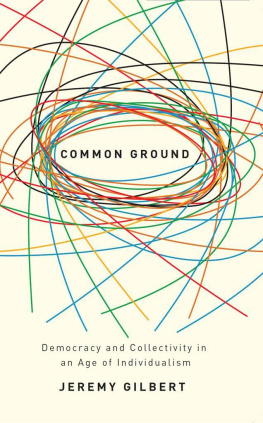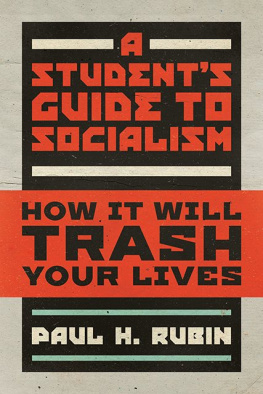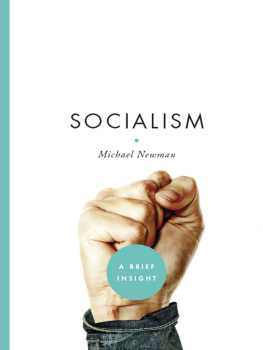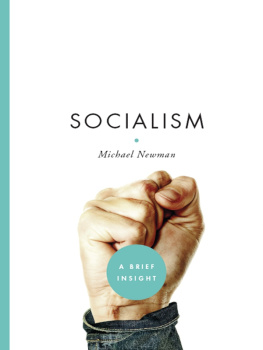
Radical Futures series
Hilary Wainwright, A New Politics from the Left
Graham Jones, The Shock Doctrine of the Left
Gianpaolo Baiocchi, We, the Sovereign
Keir Milburn, Generation Left
Jeremy Gilbert, Twenty-First Century Socialism
Twenty-First Century Socialism
Jeremy Gilbert
polity
Copyright Jeremy Gilbert 2020
The right of Jeremy Gilbert to be identified as Author of this Work has been asserted in accordance with the UK Copyright, Designs and Patents Act 1988.
First published in 2020 by Polity Press
Polity Press
65 Bridge Street
Cambridge CB2 1UR, UK
Polity Press
101 Station Landing
Suite 300
Medford, MA 02155, USA
All rights reserved. Except for the quotation of short passages for the purpose of criticism and review, no part of this publication may be reproduced, stored in a retrieval system or transmitted, in any form or by any means, electronic, mechanical, photocopying, recording or otherwise, without the prior permission of the publisher.
ISBN-13: 978-1-5095-3657-3
A catalogue record for this book is available from the British Library.
Library of Congress Cataloging-in-Publication Data
Names: Gilbert, Jeremy, 1971- author.
Title: Twenty-first century Socialism / Jeremy Gilbert.
Description: Medford : Polity, 2020. | Series: Radical futures | Summary: In this urgent manifesto for a 21st century left, Jeremy Gilbert shows that we need a revitalised socialist politics that learns from the past to adapt to contemporary challenges-- Provided by publisher.
Identifiers: LCCN 2019032308 (print) | LCCN 2019032309 (ebook) | ISBN 9781509536559 (hardback) | ISBN 9781509536566 (paperback) | ISBN 9781509536573 (epub)
Subjects: LCSH: Socialism--History--21st century. | Capitalism--History--21st century. | Populism--History--21st century.
Classification: LCC HX45 .G45 2020 (print) | LCC HX45 (ebook) | DDC 335--dc23
LC record available at https://lccn.loc.gov/2019032308
LC ebook record available at https://lccn.loc.gov/2019032309
The publisher has used its best endeavours to ensure that the URLs for external websites referred to in this book are correct and active at the time of going to press. However, the publisher has no responsibility for the websites and can make no guarantee that a site will remain live or that the content is or will remain appropriate.
Every effort has been made to trace all copyright holders, but if any have been overlooked the publisher will be pleased to include any necessary credits in any subsequent reprint or edition.
For further information on Polity, visit our website: politybooks.com
Acknowledgements
This book wasnt one that I ever expected to write, although Im glad I have, and its only thanks to the persistence and patience of my colleagues at Polity George Owers and Julia Davies that its come about at all. Keir Milburn and Alex Williams both read and commented on a first draft and were insightful and supportive as ever.
The phrase twenty-first-century socialism obviously isnt one that I coined: it was being used in various publications from the late 1990s onwards, and probably much earlier. I used this phrase polemically once or twice before, but the first time I used it as the title for anything, it was at the behest of Craig Gent, who asked me to write a short piece on the topic for Novara Media that in some ways ended up becoming the intellectual kernel of this book. In broader terms, the present volume draws on arguments that Ive made in earlier, more academic work, such as my books Anticapitalism and Culture and, most importantly, Common Ground. Perhaps more immediately, it draws on commentary that Ive written for publications such as Soundings, the Guardian, Red Pepper and New Statesman over many years but above all for Open Democracy. Perhaps most directly it draws on the pamphlet Reclaim Modernity, which I wrote with Mark Fisher and which was published by the think tank and lobby group Compass in 2014. Im grateful to all these outlets and to my editors, readers and collaborators there.
More than any of those sources, however, some of the books key sections on the nature of capitalism and socialism and on the defining features of recent and contemporary history draw on my many years of teaching undergraduates at the University of East London. Teaching students on degree programmes in cultural studies, sociology, music, media studies, politics, history and English trying to equip with them with a comprehensive and comprehensible account of how the world works and how it got that way has often been a challenge, but always a rewarding one. Its a matter of great regret that most of those degree programmes no longer exist, but the many students who passed through them are all owed a debt of gratitude for helping me to shape and hone much of the account and analysis offered here. So are my colleagues at the Centre for Cultural Studies Research at UEL, which thankfully persists in its commitment to public discussion, freed education and political analysis as well as to exploring the boundaries of cultural studies and cultural theory.
Above all, of course, like most writers, I owe a permanent debt of gratitude to my immediate friends and family for their ongoing support and inspiration. Jo Littler and our children Robin and Isla make every day special and make the future matter more than ever. It would really be impossible to list all the friends and colleagues who contribute to and stimulate my political thinking every day, but over the past few years friends connected to and taking part in the Culture, Power, Politics seminar series, as well as organisations and projects such as Compass, Momentum, The World Transformed, the New Economy Organisers Network and #ACFM have all been crucial sources of insight and interlocution. Many thanks to all of them.
Introduction
This book proposes that a twenty-first-century socialism is the only reasonable solution to the various crises and problems that the world faces today from social inequality to climate breakdown. In Part I the book sets out to explain what the basic source of those crises and problems is and why socialism might be the solution to them. In Part II the book explores in greater detail the specific features and conditions that characterize the world we live in today, from the technological revolution to the capture of our cities by the super-rich. In Part III the book expounds what the specific characteristics of a twenty-first-century socialism would be.
Notes
- Couze Venn, After Capital (London: SAGE, 2018).
Part I
Capitalism and Socialism
The Cause of the Trouble
Socialism is a word that was coined almost two hundred years ago. In practice, it can mean many different things. But, in principle, it means something simple. It is the belief that the quality of human life can be improved if people are enabled and encouraged to cooperate for the common good, rather than being forced to compete among themselves for access to resources, power and status.
So why should anyone believe that this nineteenth-century philosophy could have the answer to twenty-first-century problems?
Because our major problems today have exactly the same cause as the major problems faced by people in the early 1800s: industrial pollution, urban squalor, growing inequality, social insecurity, a widespread sense that society was falling apart and that nobody knew what to do about it, while a few were getting very rich as a result. Sounds familiar?
Next page













